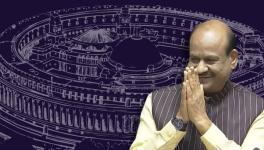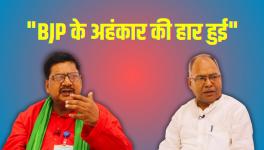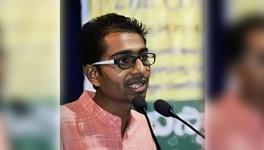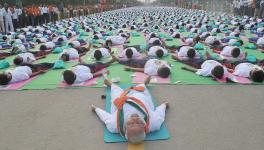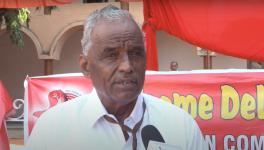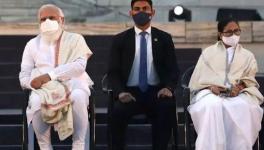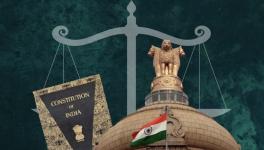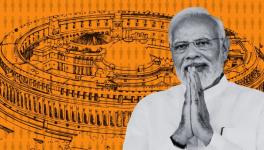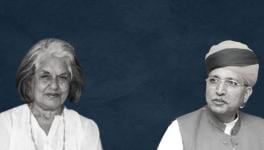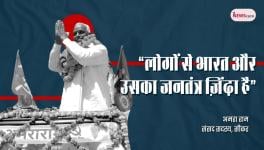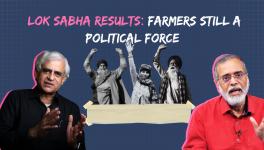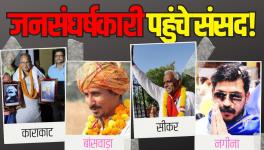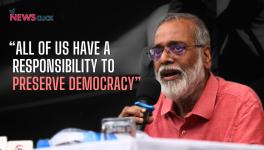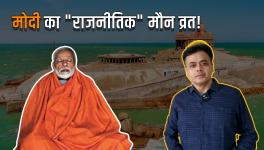ECI Has Metamorphosed From Referee to Goalkeeper for Ruling Party
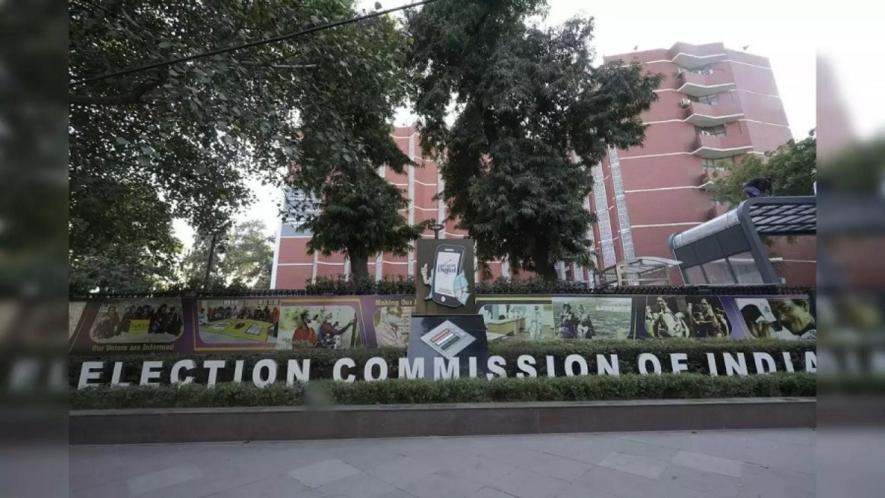
“Another important aspect is S.123(3) of the RP (The Representation of People) Act which prohibits candidates from asking votes in the name of religion. This has been part of a lot of debates. You should understand that the politicians are very much aware of their limitations. Anything that they do, which creates a religious identity and fetches them votes is forbidden and ECI must come down heavily, whoever it is, however high he may be. The ECI should take action in time and not keep matters pending. If they do not do that, they are doing the greatest disservice to the constitution and the founding fathers.”
The above lines are part of a speech delivered by a retired Justice KM Joseph of the Supreme Court of India, at a national conference on ‘The Constitution in a Changing India’, organised by the student union 2023-24 at the GLCE Law Journal and the Bhagath Singh Study Circle of Government Law College, Ernakulam, Kerala.
Justice Joseph was member of the five-judge constitutional bench that delivered the historic judgement, later overruled by the Narendra Modi government, that the Chief Election Commissioner (CEC) and Election Commissioners (ECs) shall be appointed by the President of India on the advice of a three-member committee consisting of the Prime Minister of India, the leader of the largest opposition party in the Lok Sabha and the Chief Justice of India.
In the said case, during the hearing, Justice Joseph had once raised a very crucial question on the petition of appointment of ECs and CEC. Underlining the importance of having a CEC who is ‘independent and a man of character’, the top court wondered will it would not be a case of ‘complete breakdown of system’ if the CEC does not act against the Prime Minister in case there are allegations against him.
It is surprising that one of the main concerns of the Opposition in this Lok Sabha election was the protection of the Constitution, democracy, and democratic institutions, among which the Election Commission of India (ECI) was a prominent one.
With scepticism, the entire nation was waiting to see what steps the ECI would take against Prime Minister Modi on the derogatory remarks he made about Muslims in a rally in Rajasthan, describing them as “infiltrators” and “those who produce more children”, which is unprecedented in independent India. Hearing such words from a person like Prime Minister is the biggest misfortune for the citizens of any country.
In the same rally, Modi struck a controversial note by alleging that if Congress comes to power, it will implement its manifesto that promises equitable distribution of wealth and interpreted that this would mean taking away even the mangalsutra of Hindu women and giving away their gold to Muslims. He described Muslims as ‘illegal immigrants.”
What more clear examples can there be of using religion to gain votes! Although, there were no such mention at all in the Congress manifesto. It was clear from the words of the Prime Minister that he was bound to make such a desperate move of speaking such an false and distorted words, as he smelt an ominous outcome of the elections results for his party.
Although a series of complaints were lodged against the Prime Minister to the ECI, they refrained from taking any action (later it sent a notice to the ruling party president instead), which has now become the prevailing trend in Indian elections. The ECI relinquished their refereeing responsibility and aligned themselves with the ruling party's goalkeeper during these elections.
Remember the fate of former Election Commissioner Ashok Lavasa? He left ECI shortly after the 17th Lok Sabha elections. If he had stayed in the Commission, he would have been the chief referee for the 18th Lok Sabha elections. However, he found himself in opposition to the other two commissioners when attempting to fulfil the actual role of a referee.
Using the Pulwama attack to boost the Prime Minister's electoral campaign in the 2019 Lok Sabha elections was a blatant violation of model code. The other two commissioners did not agree to acknowledge this. Consequently, the Commission gave the Prime Minister a clean chit. Similarly, the ECI refrained from taking action against several other leaders and ministers of the ruling Bharatiya Janata Party (BJP) causing a public uproar.
The conflict emerged when Lavasa opposed the clean chit given by the other two commissioners, including the then CEC Sunil Arora, and they even refused to incorporate his dissent note. The ECI even refused to disclose the same in a RTI application. Finally, Lavasa quit the ECI and had to face the central agency raj.
In an article published in The Indian Express, Lavasa wrote, “Honesty is the best policy” was a favourite topic of debates in school. It is another matter that both sides — for and against — ended up supporting the motion; the only point of difference being whether honesty was its own reward or it came with an avoidable cost. He also wrote, "It is naïve to expect those that have been opposed by the honest to meekly accept the ascendance of the meek. They strike back and the price for the honest could be in the form of lonely suffering, even noticeable isolation. The honest could be shunned by friends and foe alike".
The present ECs deserve thanks in a way because they remind us of their predecessors who did not bow their heads before any power, be it the government or the ruling party. They remained within the prescence of their constitutional rights and preserved the dignity of the institution. Unfortunately, the present ECI is gradually turning the institution to the state that prevailed before TN Seshan came in, when the ECI was like any other government ministry.
The huge power and rights given to ECI under Article 324 of the Constitution are not reflected in the acts of the present dispensation. As stated before, the ECI seems to be playing the role of a goalkeeper, instead of a neutral referee for the rulers to ensure that the Opposition does not score a goal.
Another issue between Narendra Modi and J M Lyngdoh, the former CEC, inevitably comes up in the debate on the ECI’s role. During the Assembly elections immediately after the Gujarat communal violence in 2002, the ECI’s full team visited the state. After careful review of the law-and-order situation, Lyngdoh, the then CEC, deferred the Assembly elections. ECI then clearly stated that many people, especially from the Muslim community, were taking refuge in camps and the situation in the area was not normal for holding free and fair vote.
Against the backdrop of the ECI's stern stance, the then Gujarat Chief Minister Narendra Modi's aggression was noteworthy, surprising, and extremely disrespectful toward the CEC. Modi targeted Lyndoh’s Christian identity. Minorities have never got fair treatment from him. Soon after the ECI pronounced its decision, Chief minister Modi, in a public rally in Vadodara, seemingly in joke, said, ‘’Some journalist asked me recently, “Has James Michael Lyngdoh come from Italy? I said, I don’t have his janam patri, I will have to ask Rajiv Gandhi. Then the journalists said, 'do they (read Lyngdoh and Sonia) meet in Church?’ I replied, maybe they do.’’. BJP then considered the then Congress president (Sonia Gandhi) as an “outsider.”
The matter was referred to the Supreme court and led to a major constitutional debate. Article 174 of the Constitution required that Assembly elections should be held within six months of the date of the dissolved Assembly. On the other side, Article 324 empowers ECI to, “Superintendence, direction and control of the preparation of the electoral rolls for, and the conduct of, all elections to Parliament and to the Legislature……..’’ The apex court stood by the ECI and made it clear that when to hold elections is the exclusive jurisdiction of the Commission.
In today's India, we cannot imagine that ECI would ask the Prime Minister to dismiss his cabinet colleague for violating the Model Code of Conduct, as late TN Seshan had suggested to PV Narasimha Rao. In 1994, during the Andhra Pradesh and Karnataka Assembly elections, two ministers had promised reservation for Muslims and increase of quota for sugar purchase in election rallies.
When Prime Minister Modi himself promised extension for another five years of PM Garib Kalyan Anna Yojana in the midst of the Chhattisgarh Assembly election last November, the ECI was completely mum. Seshan, Lyngdoh, and even Lavasa, had shown that ECI could stand up against the unethical deeds of powerful leaders floating with the tide of popular support.
On a petition of appointment of two ECs and the CEC, a Supreme Court five-member constitutional bench remarked, “There have been numerous CECs and TN Seshan happens once in a while. We do not want anyone to bulldoze him. Enormous power has been vested on the fragile shoulder of three men (two ECs and the CEC). We have to find the best man for the post of CEC. The question is how do we find that best man and how to appoint that best man,”
In his book, Miracle of Democracy: India’s Amazing Journey, former CEC TS Krishnamurthy wrote, “If the history of Election Commission is written, it has to be divided into two parts — pre-Seshan era where the Commission functioned as a department of the government and the post-Seshan era when the Commission became more independent.” During Seshan’s time, the ECI had listed 150 malpractices in the election system. He introduced the Election Photo Identity Card (EPIC), ensured strict vigilance on the MCC, election expenditure and safety, security of voters and election workers.
This writer was fortunate to do journalism during Seshan’s tenure and closely observed his decisions. There was no doubt that he possessed a certain type of eccentricity and had a tendency to position himself as a strong authority. Late Jyoti Basu and J Jayalalithaa, two former Chief Ministers and stalwarts of Indian politics, believed he was ‘‘megalomaniac’’ and “embodiment of arrogance’’, respectively. Although, in the interest of electoral reforms, Seshan’s sincerity and courage were unparalleled.
This writer had the opportunity to meet Seshan again when he himself was facing election from Gandhinagar in 1999 against BJP stalwart Lal Krishna Advani. He was kind enough to give an appointment at 5 a.m, during his morning walk. It was a memorable experience to see that Congress candidate Seshan spent Rs 10 for tea for his assistant and noted down the expenditure in a diary, something that he had strictly enforced when he was CEC. One should not forget that during his time, 1,488 candidates were disqualified for not submitting expenditure accounts, and 14,000 debarred for providing false information.
Almost all Seshan’s successors were also keen on electoral reforms and tried to make the ECI a truly self-governing institution. However, the Commission began its journey on a completely opposite path during the 2019 parliamentary elections. After observing the steps taken by the then CEC, it seemed like the Prime Minister's principal secretary himself was overseeing election management.
The present ECI has walked the same path. The reason why this democratic institution in India is in danger is that the people who have been placed at the helm at present are such who prefer to surrender their power and right to the powerful and mighty rulers.
The writer is a senior journalist and author based in West Bengal. He is former senior editor, Times Group. The views are personal.
Get the latest reports & analysis with people's perspective on Protests, movements & deep analytical videos, discussions of the current affairs in your Telegram app. Subscribe to NewsClick's Telegram channel & get Real-Time updates on stories, as they get published on our website.









